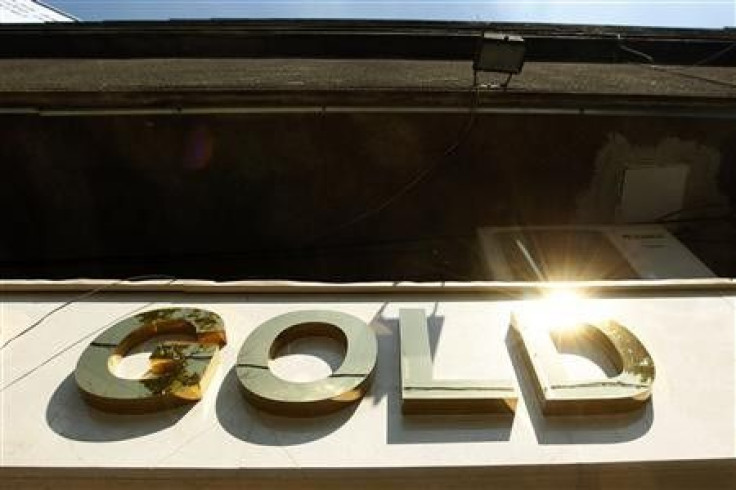Gold Mining Stocks Falling but Gold Price Rises

Shares of major gold mining companies fell Friday in midday trading, after the head of the U.S. central bank used a closely-watched speech to indicate that the Federal Reserve had no immediate plans to stimulate the lagging economy with another round of bond buying.
Bernanke expressed optimism about the economic recovery, though he did acknowledge its painfully slow pace. Importantly, he gave no signal that the central bank would intervene, as it did after his last such talk. Instead, he placed the onus for on the Congress and the Obama administration to get their fiscal house in order.
Most of the economic policies that support robust economic growth in the long run are outside the province of the central bank, he said in prepared remarks. Notwithstanding the severe difficulties we currently face, I do not expect the long-run growth potential of the U.S. economy to be materially affected by the crisis and the recession if -- and I stress if -- our country takes the necessary steps to secure that outcome, he said before discussing how Congress and the White House should focus on fiscal policy.
Barrick Gold Corp. was down nearly 1 percent, AngloGold Ashanti Ltd., fell 2.4 percent, Newmont Mining Corp. dropped 1.7 percent and Kinross Gold Gold Corp. was off 1 percent.
The price of gold on the futures markets, though, rose nearly 1 percent, or $17.50 to $1,780.70 per ounce on the CME Comex division of the New York Mercantile Exchange.
Bernanke's speech confirmed gold analysts' upbeat view of the yellow metal's prospects.
The Fed is in a tight spot. Though they may hold off as long as possible, I believe they will be forced either to institute another round of bond buying, or to come up with some other form of stimulus, said Mike Getlin, executive vice president of Merit Financial. Either way, it equates to printing more money, which will be price positive for gold.
A year ago, when Bernanke last spoke at the Jackson Hole, Wyo., symposium, his speech laid the groundwork for what turned into a $600 billion buying spree of U.S. government debt. That initiative, which increased the central bank's balance sheet to $2.3 trillion in longer-term securities, boosted the price of Treasuries and injected lots of money that energized the stock market. The buzz lasted into early 2011.
But in the past four weeks the stock market has fallen more than 13 percent, Commerce Department figures released Friday show the economy advanced in the spring at a 1 percent annual rate and unemployment remains stubbornly above 9 percent. Worst of all, some economists see a double-dip recession coming.
So far in August, the Standard & Poor's 500 Index has fallen 10 percent -- a figure that papers over some of the gut-wrenching daily drops and mind-bending volatility.
But stock market investors spent much of this week driving share prices higher on the premise that the Fed would have to begin to snap up more bonds to push borrowing costs lower. The S&P rose nearly 5 percent through Wednesday before the reality began to set in Thursday that Bernanke was unlikely to lay out any bold policy initiatives.
© Copyright IBTimes 2024. All rights reserved.












